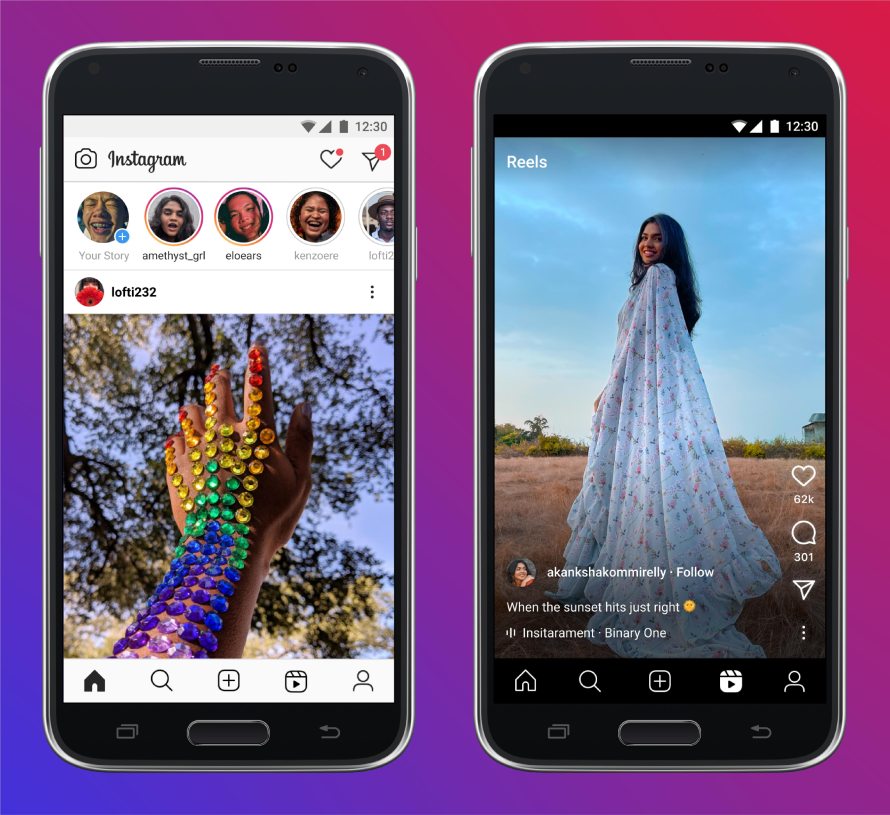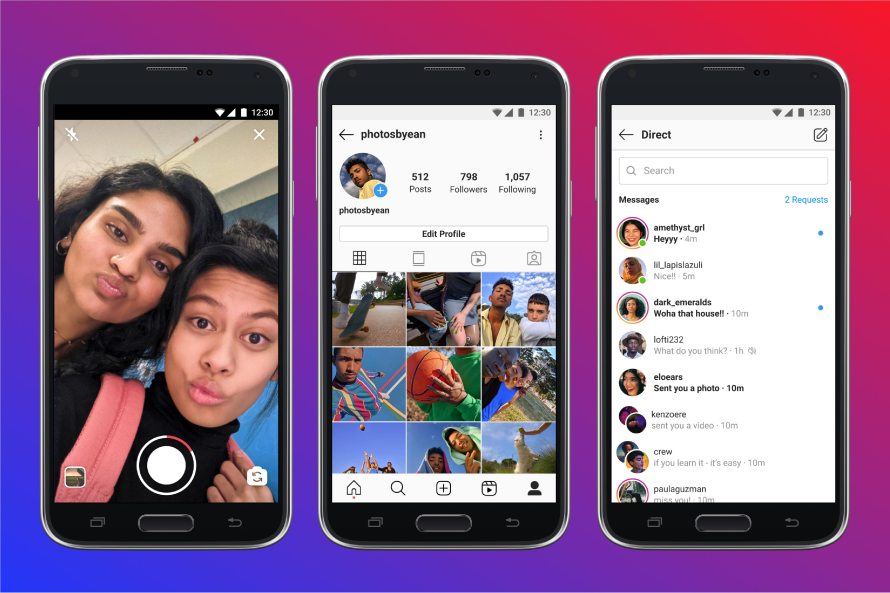When COVID-19 closed the Facebook Inc. offices in Tel Aviv, Michelle Lourie found herself working in a shed on the kibbutz where she lives with her family in Israel. It’s a far cry from Tel Aviv, a city techno-edgy enough to merit being called the world’s startup capital. In addition to fielding visits from her three small children in her new digs, the product manager had to contend with the bleats of goats grazing outside and an internet connection that was spotty at best.
It was the perfect setting for her latest project.
Over the past year, Lourie and her team in Tel Aviv developed Instagram Lite in collaboration with a New York–based team including Instagram engineering, product, design and research.
This new app for Android is designed to provide people living in rural and remote communities with a high-quality Instagram experience using minimal data.
The app, which is rolling out in more than 170 countries, arrived not a moment too soon. During the past year, Instagram has become a lifeline for many to connect with loved ones or find a small moment of inspiration, be it a photo of a friend’s newborn or a video of puppies discovering snow.
Yet for millions of people, accessing these daily doses of connection and entertainment is not so simple. Slightly more than 63% of the world’s population is online, as opposed to nearly 90% in North America. And many of the regions that are connected do not possess the most up-to-date mobile devices, robust internet networks, or affordable data plans needed for swift delivery of the data-rich videos and images found on Instagram.
For instance, only around 50% of households in India have access to the internet. “No matter where they are, people want to be entertained and inspired by those that they love,” says Lourie. “It’s difficult to do that on Instagram with an entry-level phone that has storage constraints.”
“Our teams build these lightweight versions of our apps for people with low connectivity or limited data plans because our basic premise is to leave no one behind,” adds Tzach Hadar, Director of Product Management at Facebook Tel Aviv, one of the largest strategic engineering hubs for Facebook globally. “We wanted the Instagram experience to remain fast, high-quality and reliable, irrespective of the device, platform and network people are on.”
But creating that experience was complicated by the pandemic itself. Aside from the usual challenges of working remotely, the team’s market researchers were unable to travel to target markets, like India and Brazil, to test out the product. Instead, they had to get creative. Each member received an entry-level phone of their own to see firsthand whether the app felt like something they would use. They also connected to emulators that slowed the speedy networks of Tel Aviv. (Except for Lourie, whose internet access simulated that of remote locations just fine.) “Our team was very effective at doing virtual research to find out: What do people need?” says Gal Zellermayer, Engineering Manager for Instagram Lite, Tel Aviv.
What the team came up with is an app that requires only 2 MB to download on Android — considerably less than the full-size version, which was closer to 30 MB — but retains the key features that people using entry-level devices want. To keep those features on the smaller app, the team took a page from Facebook Lite, another Tel Aviv creation that debuted a few years ago, by offloading into the cloud much of the code from the app running on the phone.
The team then focused on what people valued most, namely video and messaging, which remote dwellers use more actively than their urban counterparts. Both posed a tightrope walk for engineers. While the team wanted to preserve the beauty and craft of Instagram’s design, they also had to remain mindful of how the app would perform in a setting with poor connectivity and slower networks. “Instant feedback is very important for anyone with ongoing network problems,” says Lourie. “If you have to wait for some animation to upload, it’s unclear to a person if something went wrong or if the feature is just not working.”
To keep performance reliable, the team removed much of the ornate, data-rich animation, such as cube transitions and the AR filters people can apply to faces. However, they kept features that could deliver joy with less data, like GIFs and stickers. They also got rid of certain icons that do not make sense to new digital users. For instance, a trash can icon did not resonate as a symbol for getting rid of something, but an “X” rang clear.
Even after rolling out Instagram Lite during testing, the team discovered there were other features on people’s must-have list. For instance, multiple people requested a “dark mode” option, which replaces the bright white background with a black one and gray text. “For people who live in communal areas and close quarters, it’s really important to browse more privately and not bother those around them,” explains Lourie.
And it’s that detailed attention to consumers’ needs that has already paid off. Shortly after the introduction of Instagram Lite, notes began pouring in from people around the world expressing a gratitude that runs deeper than dark mode, trash can icons, and GIFs. “I am from Venezuela, and some will understand that it is not easy to have a new smartphone,” wrote one person. “I have a Samsung [Galaxy S] Duos with several old apps, but thanks to this application I can have a window to a better world.”
Starting today, people in more than 170 countries will be able to download Instagram Lite in the Google Play Store to have a high-quality Instagram experience, no matter what network or device they’re on. We will be rolling out the app globally soon.





